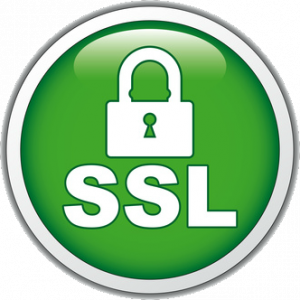
How SSL Certificates Keep Businesses Safe
SSL, or Secure Sockets Layer packages are small but powerful data packets which digitally bind a key to a particular business or organisation’s details. Once applied to your server, SSL certificates act as a cryptographic lock on the browser and https protocol, allowing secure connections between your server and the customer’s browser. SSL certificates bind the domain and server names with a host organisation or entity, and the location of that entity. In this manner, SSL certificates are stamps of reliability and safety for customers looking to process sensitive transactions.
Why SSL Matters
Last year around half of UK businesses were subject to cyber-attacks, and with recent ransomware attacks on renowned institutions like the National Health Service, customers are more concerned than ever with their online safety. Using SSL certification ensures that only the intended recipient of any data can understand it; important in a World Wide Web and dark net 2023 where data must pass through multiple computers and IP locations in order to reach the destination server. On an unencrypted signal any computer which your data passes through can access the information, meaning your customer’s information is only ever as secure as the weakest link in that chain. With SSL certificates this doesn’t matter, because even if malicious users access the data, they’re unable to read it.
Features of SSL
In addition to encryption protocols, SSL provides authentication of transfer; this means you and your users can be certain that you’re sending your information to the correct server, rather than an impostor. The most trustworthy SSL providers will only allow verified, reliable, companies to purchase certificates after going through a number of identity checks. There are various kinds of SSL certificates and more advanced ones like EV SSL require more thorough authentication.
Recent studies have shown that UK businesses have lost up to £42 billion pounds due to insufficient cyber security, with the average FTSE 100 firm losing an average of £120 million after a single breach. Figures like these mean consumers are looking for safety; most of the commonly-used web browsers will provide visual cues to show that a website is SSL certified and thus secure, highlighting the URL in green and showing a ‘trusted’ seal.
If you’re operating a business with online transactions, then getting SSL certificates for your servers is necessary part of ensuring you’re fully compliant with Payment Card Industry (PCI) standards.
How to Get SSL Certificates
There is a cost involved with obtaining SSL certificates in the UK, as SSL providers have to set up the infrastructure and validation protocols to ensure that you’re a reliable business. SSL certification is a growing industry however and competition is helping to drive prices down. You’ll also see added stress on your servers as they perform encryption protocols, though you won’t see a noticeable difference in user-side performance unless your web-page is incredibly popular. If this is the case, there are options available to help optimise server performance at a relatively low cost.
In today’s security-conscious world, it’s important to stand out as a trustworthy, reliable business. SSL certification is not only a front-line defence against data intrusion, it also helps to give your customers peace of mind.

